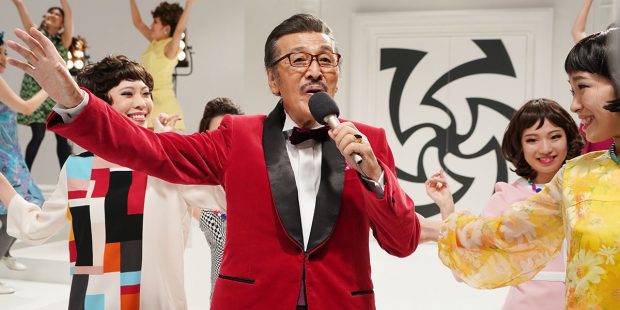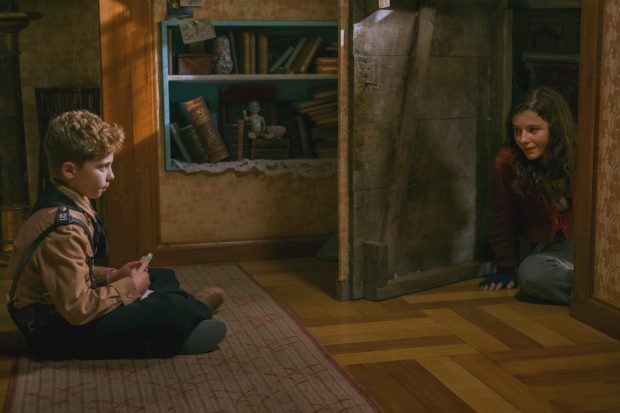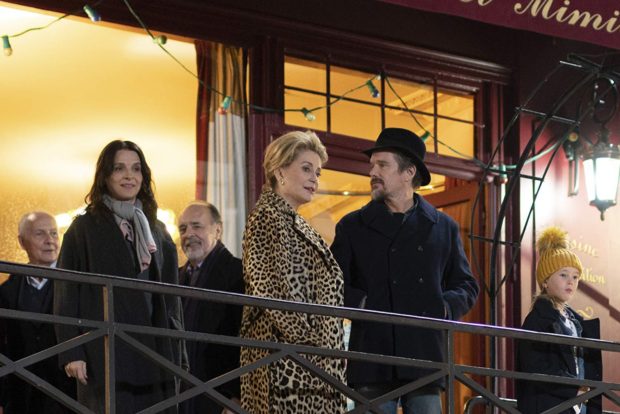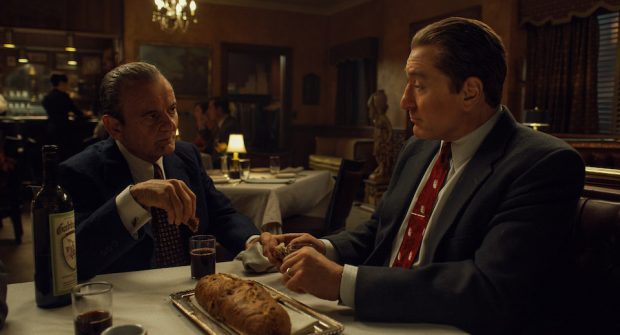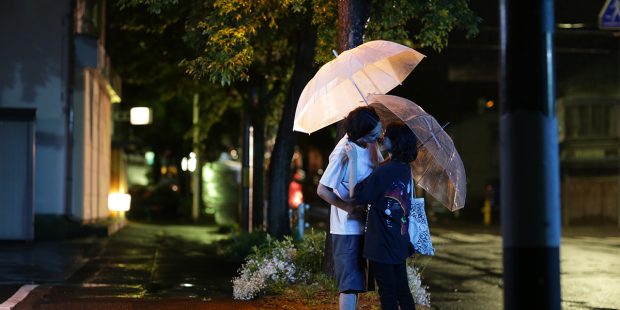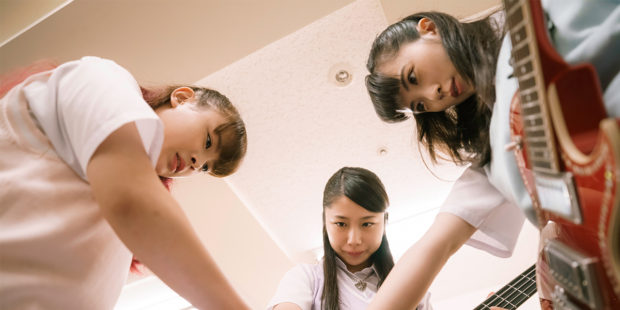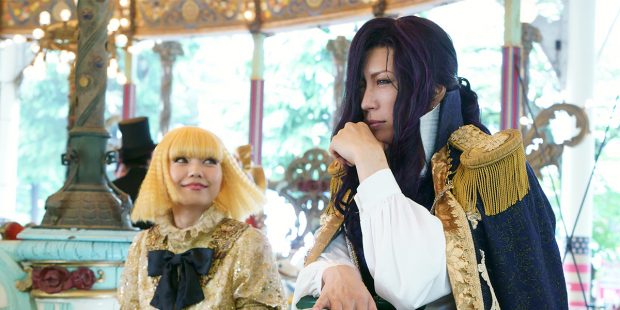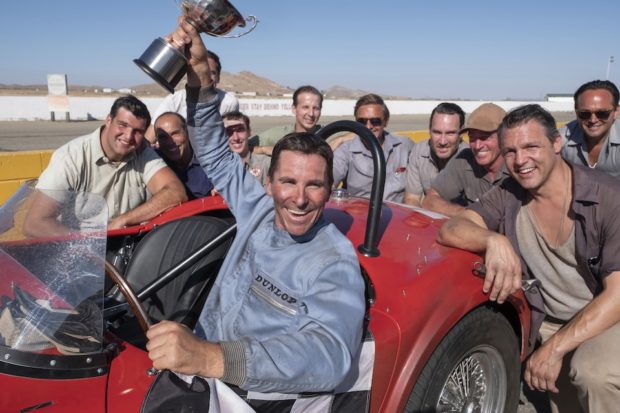Films based on the music of a band or performer have spanned genres, from this year’s Wham! inspired Last Christmas to practically any film drawing on The Beatles. Following the based-on-a-song Snow Flower, director Kojiro Hashimoto is rapidly carving out a niche in the sub-genre with LITTLE LOVE SONG (小さな恋のうた), a film based on the music of Japanese band MONGOL800.
In the shadow of the US Army base, a high-school band in Okinawa is developing a fierce following. Yet when tragedy strikes on the cusp of breaking big with a major label, singer Ryota (Hayato Sano), drummer Kotaro (Yuki Morinaga) and fledgling guitarist Mai (Anna Yamada) – the sister of their former guitarist – must decide how they will go on.
On the surface, Hashimoto’s film can be viewed primarily as a coming-of-age drama framed within the struggles of a high-school band. Yet there’s nothing especially straightforward about the telling of Kenya Hirata’s (Confession of Murder) screenplay. From a trauma induced dream sequence that takes up most of the first act to the constant flashbacks, the whole film is kind of structured like a song. Each of the vignettes is a verse while the performances punctuate the narrative like a chorus.
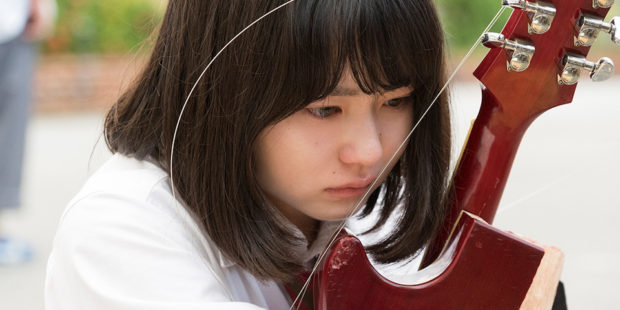
There’s also a secondary storyline around an American family living on the US Army Base in Okinawa. The kids talk with young Lisa (Claire Tomiko), who develops a friendship with them from the other side of a fence. Following the hit-and-run death of a local teen, the Okinawans turn their rage against the Army base who are presumptively harbouring the culprit. This thread, thematically reminiscent of the Ryugo Nakamura’s Okinawa-set films (including 2016’s Girl of the Sea) adds an extra level of drama and tension that reflects decades of underlying tension on the isalnd.
The songs that act as the film’s backbone – including the titular ‘Chiisana Koi No Uta’ – are a likeable retro throwback. While there’s really only a handful of them used throughout the film (it’s a high school band after all), ‘Don’t Worry, Be Happy’ (off their 2000 album Go On As You Are) gets the right amount of play to balance out toe-tapping with the emotional peaks and troughs.
Relative newcomers Hayato Sano (Blue Summer) and Anna Yamada (5 Million Dollar Life) are enthusiastic and authentic in the roles. The perpetually middle-aged teen Yuki Morinaga (known for the Chihayafuru series) is arguably the standout, and like all good drummers he steadily maintains the emotional beat to allow his co-stars their solo moments. The “American” casting is a little less successful from the perspective of a Western audience, with some wooden English-language overacting (which fans of Asian cinema tend to be used to), while the all-American teen daughter Tomiko is inexplicably part Japanese.
If this is indeed structured like a little love song, as the title would imply, then it’s inevitable that it’s all going to end in a strong performance. Which is where LITTLE LOVE SONG really shines, strumming along to its simple message that (in the words of Mai) “Music can teach you a lot about life.”
2019 | Japan | DIR: Kojiro Hashimoto| WRITERS: Kenya Hirata | CAST: Kazuhiko Kanayama, Gordon Maeda, Yuki Morinaga | DISTRIBUTOR: Toei (JPN), Japanese Film Festival 2019 (AUS) | RUNNING TIME: 123 minutes | RELEASE DATE: October – December 2019 (JFF)



